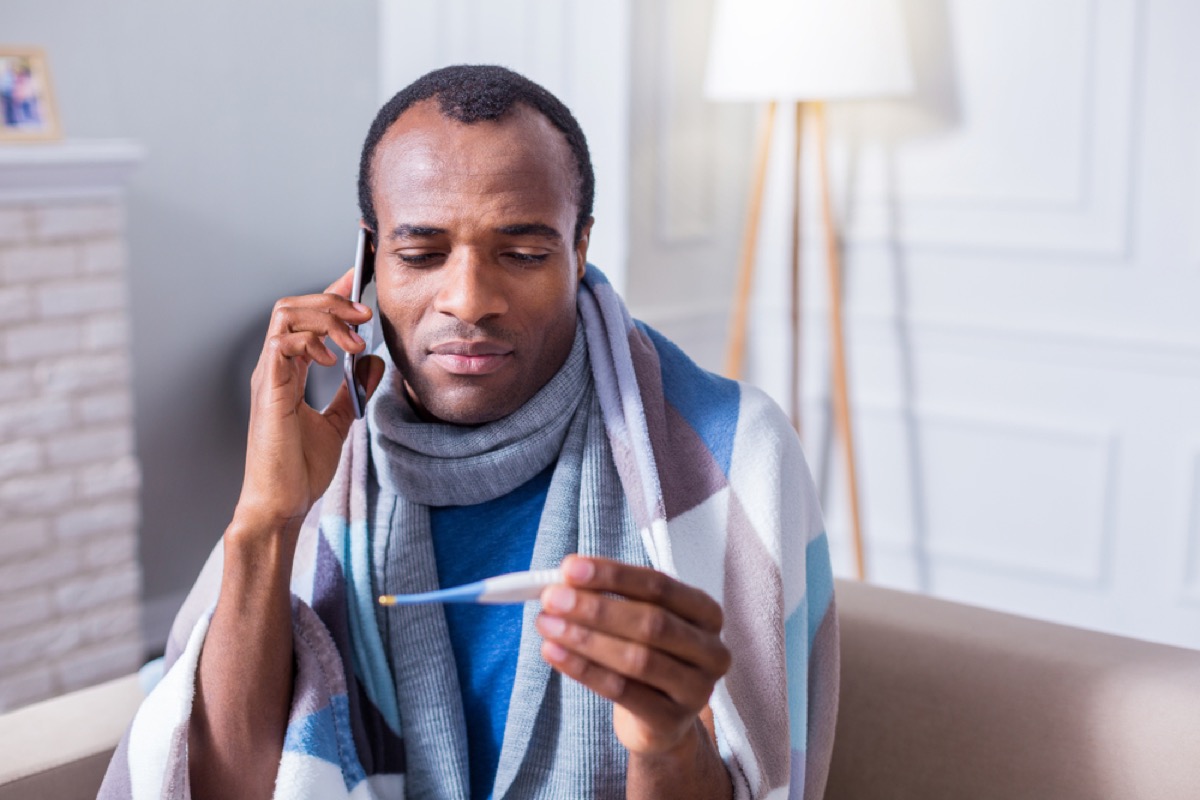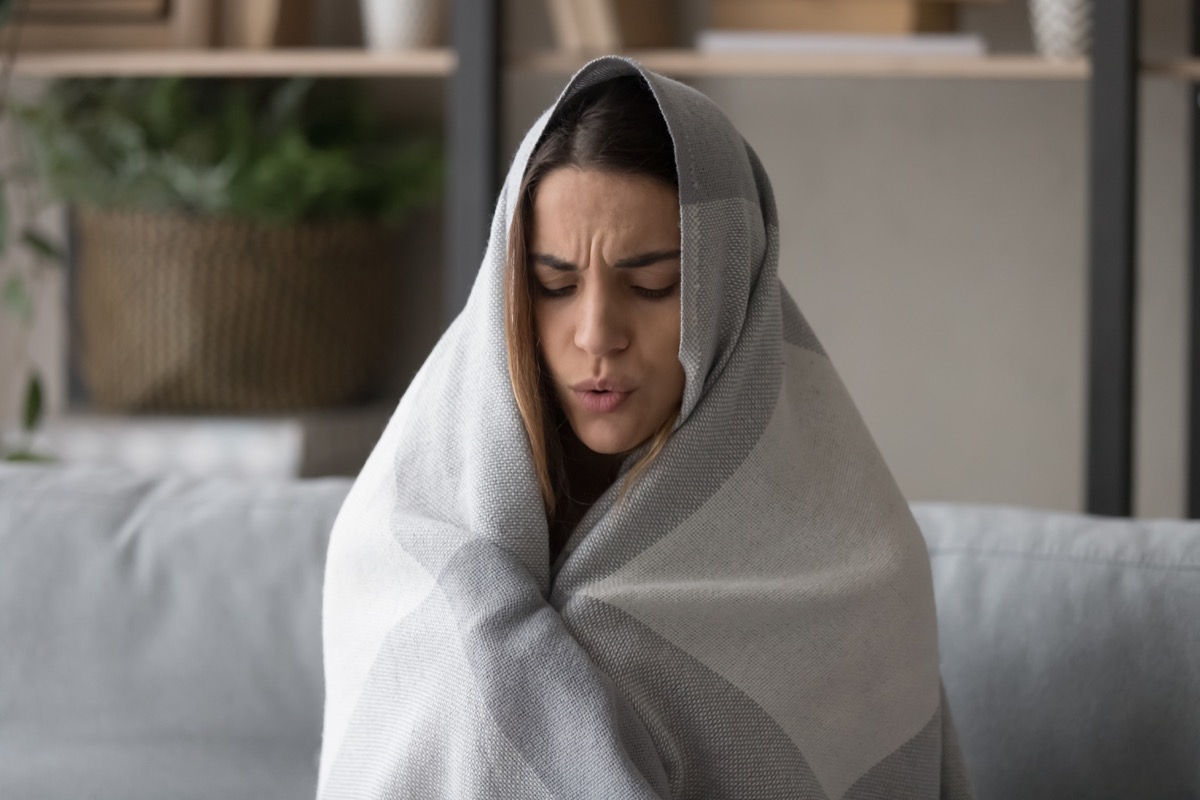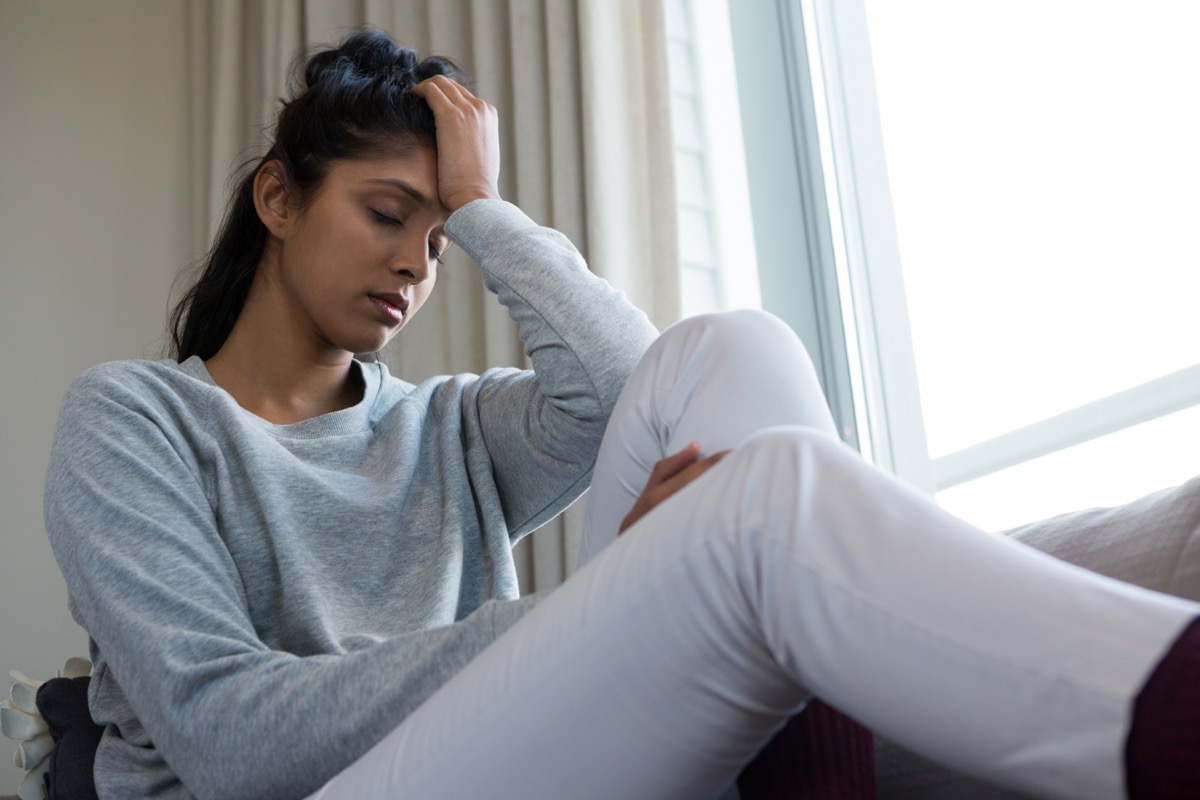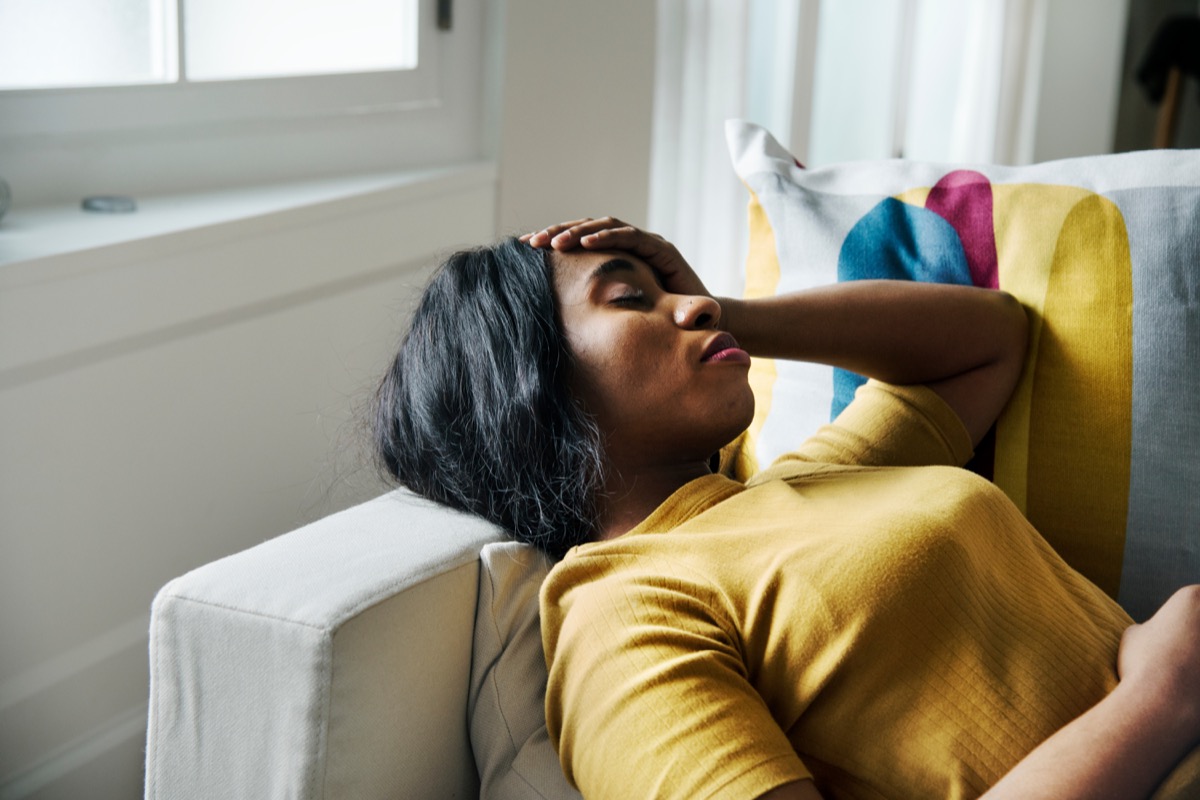The CDC ensures people that the side effects listed are nothing to worry about, but rather “normal signs that your body is building protection.” The agency says that although the side effects, which may feel flu-like, will eventually dissipate, they may impact your ability to partake in regular activities for a few days. Read on to learn the common side effects of the COVID vaccine, according to the CDC, and to see when you’ll be able to get vaccinated, check out Dr. Fauci Just Said You’ll Be Able to Get the COVID Vaccine Even Sooner. Read the original article on Best Life. Many vaccines result in pain, swelling, and tenderness in the arm where you got the shot, and the COVID vaccine is no different. The CDC suggests applying “a clean, cool, wet washcloth over the area” and continuing to use your arm, as usual, to help reduce any pain. While a little discomfort is nothing to worry about, the CDC says you should contact your healthcare provider if the redness or tenderness in the spot you got the shot gets worse after 24 hour. And if you are experiencing significant discomfort, the CDC suggests consulting your doctor about taking over-the-counter medications such as ibuprofen or acetaminophen. Luke Hutchison, a Massachusetts Institute of Technology–educated computational biologist, who participated in a Moderna study over the summer, told Science Magazine the pain in his arm at the site of the shot felt like a “goose egg on my shoulder.” But, after just 12 hours, Hutchison said all of his side effects disappeared. And for more up-to-date COVID news delivered straight to your inbox, sign up for our daily newsletter. Having a fever is another common side effect of the COVID vaccine. To help bring your temperature down, the CDC suggests drinking plenty of fluids and dressing in light clothing. If your fever or any other side effects don’t seem to be going away after a few days, the CDC says to call your healthcare provider. And to see if you should talk with your doctor before getting vaccinated, check out These Are the Only People Who Shouldn’t Get the COVID Vaccine. Not only can the vaccine make you run a fever, but it could also give you body chills. Hutchison reported that he experienced “cold and hot rushes” after his shot. Although this side effect could be irritating, it’s nothing to be concerned about unless it lasts for more than a few days, according to the CDC. And to see what you should avoid doing after getting vaccinated, check out You Shouldn’t Do This Right After Getting a COVID Vaccine, Expert Warns. If you find yourself feeling more tired than usual after receiving the COVID vaccine, don’t fret. The CDC says fatigue is one of the normal side effects of the shot. Multiple people who participated in Moderna’s vaccine trial reported to Science Magazine that they experienced fatigue, including Ian Haydon, who received the highest dose during Moderna’s first human trial in May. According to the magazine, though, only 3.8 percent of participants in the Pfizer/BioNTech vaccine experienced fatigue.ae0fcc31ae342fd3a1346ebb1f342fcb A headache is another common side effect of the COVID vaccine, according to the CDC. Science Magazine says 2 percent of people who participated in the Pfizer/BioNTech trial had a headache as a side effect of the vaccine, while 4.5 percent of participants in the Moderna trial experienced the side effect. To learn why you shouldn’t try to get vaccinated sooner than scheduled, check out If You Cut the Line for the COVID Vaccine, It Could Have This Scary Effect.




